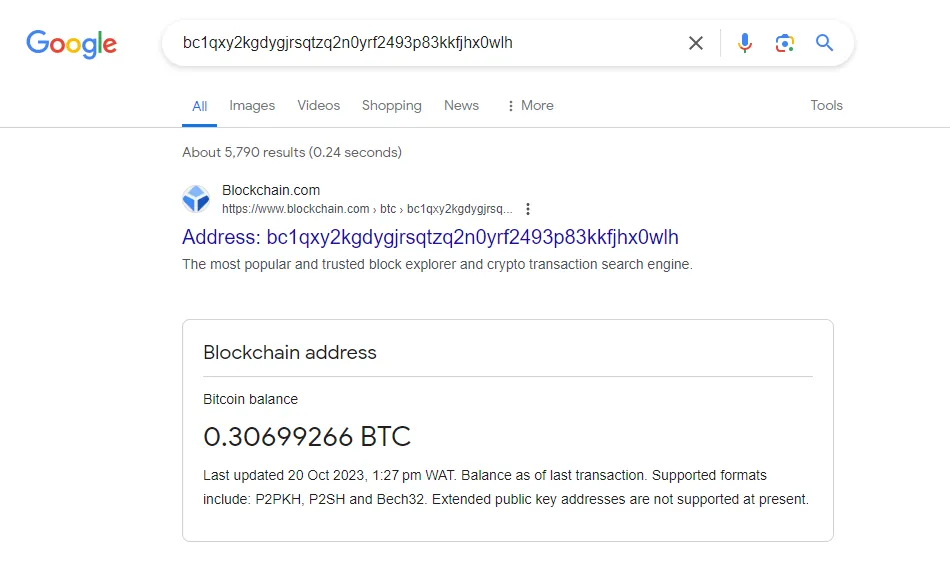Google’s recent move to incorporate Bitcoin wallet balances into its search features has ignited a debate over privacy concerns among supporters of the cryptocurrency’s privacy-centric ethos. While some hail this as a step towards mainstream adoption, others worry about the implications of centralized data aggregation.
The tech giant has expanded its search capabilities to enable users to inquire about wallet balances across various blockchains, including Bitcoin, Arbitrum, Avalanche, Optimism, Polygon, and Fantom. By simply entering a wallet address, users can now access information regarding token balances across different networks, along with the timestamp of the last update.
Google’s integration of Bitcoin data into its search results is seen as a significant step towards enhancing accessibility to on-chain activities, leveraging its vast daily search volume. However, amidst the applause for this move towards mainstream acceptance, there are voices of concern regarding the potential consequences of centralized data aggregation on user privacy.
This development follows Google’s earlier introduction of Ethereum Name Service (ENS) domain search results, allowing users to check wallet balances associated with readable domain names like “vitalik.eth” for Ethereum wallet addresses. The recent expansion builds upon Google’s initial foray into Ethereum wallet balance searches in May 2023, and its integration of a crypto feature in 2022 that enabled some Ethereum wallet addresses to have their Ether balances tracked directly through the search engine, obviating the need for visits to platforms like Etherscan.

The addition of wallet searches signifies a notable shift in Google’s stance towards cryptocurrencies. While the company had previously barred Bitcoin-related advertisements in 2018, it has since reversed its position, permitting advertisements for spot Bitcoin exchange-traded funds (ETFs) following their approval in the United States in January. Notable ETF products from asset managers like BlackRock are now visible in search results.
In October 2022, Google forged a partnership with Coinbase, enabling customers to pay for cloud services using cryptocurrencies. Furthermore, the tech giant demonstrated its engagement with the crypto space by initiating a countdown to the Ethereum Merge event, which marked Ethereum’s transition from proof-of-work (PoW) to proof-of-stake (PoS) in 2022, through an animation featuring synchronized pandas.
In 2023, Google Cloud collaborated with Web3 startup Orderly Network to develop user-centric developer tools for decentralized finance (DeFi), aiming to lower entry barriers into the decentralized world and address longstanding challenges such as security issues and entry barriers in the DeFi ecosystem.

